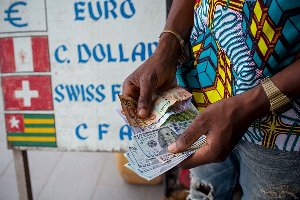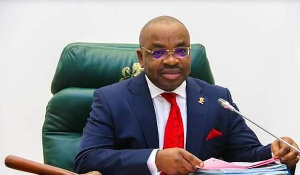The Korle-Bu Teaching Hospital, the nation’s leading health facility, is in crisis and needs an emergency treatment, less many more avoidable deaths would continue to occur.
Currently, key units of the hospital are non-functional. These sections are: Surgical-Emergency Emergency (SME), Central Laboratory, and a new Gynaecology Theatre commissioned two years ago by the President.
Even though there are other areas that are not operating at their optimum levels for various reasons The Chronicle would for now restrict itself to the three areas cited above.
For three weeks now, the Surgical-Medical Emergency (SME), the first point of call at the hospital for all emergency cases, except those to do with accidents, pregnancy and child health, have been closed to the public due to unsafe conditions there.
For about four weeks, the Central Laboratory of the hospital has become non-functional, due to, as The Chronicle has gathered, the breakdown of a stabilizer.
It is about two years now, since President John Agyekum Kufuor commissioned a new Gynaecological Theatre at Korle-Bu, yet it has never functioned due to lack of equipment. The Chronicle highlighted this a couple of months ago.
For a country that purports to care about the health of its citizens, to the extent of ramming down their throats a national health insurance scheme that is still tottering, The Chronicle finds the current state of Korle-Bu highly objectionable.
For a hospital that still operates the ‘cash-and-carry’ scheme, to the extent that it can put up an administrative block worth hundreds of millions of cedis, from ‘internally-generated funds’ (IGF) we are at a loss as to why it cannot commit part of its proceeds into fixing problems that have direct bearings on the efficient and effective administration of health service.
If a section of the hospital that is to handle emergency cases, that oftentimes are life-threatening, can be allowed to be shut down for three weeks, then questions about the commitment of those in charge of health administration in this country arise and they owe the sovereign people of this country explanations.
Again, considering that laboratory tests are essential for diagnosis, monitoring, and confirmation of patients’ health status, to enable proper treatment, it is strange also that the Central Laboratory of Korle-Bu that generates over ¢20 million cedis a day for the hospital would not be provided with an amount that could be less than its daily-generated revenue to fix or replace a broken down stabilizer.
The result, unfortunately, has been that many patients, counting on their health insurance premiums that ordinarily should exempt them from paying for laboratory fees, are unable to afford the charges at private laboratories, thus disabling some of them from continuing with the diagnosis and treatment process.
Even for those who are able to afford payment of private laboratory charges, the question of refund, which they are entitled to, as subscribers to the health insurance scheme, remains troubling.
Situations like these clearly undermine people’s confidence in the national health insurance scheme as well as the general health service delivery in the country. And this has implications for our attraction for investors as well!
With regard to the new Gynae Theatre, The Chronicle is still at a loss as to why the president had to commission a project that was not ready to become operational, such that two years on, it is still non-functional.
It is imperative that Korle-Bu, being a referral hospital, coupled with the inadequate number of up-to-date medical facilities in the capital, as well as the population size, all facets of the hospital become functional at all times.
The Chronicle would like to know from the Chief Executive of Korle-Bu, Prof. K. Frimpong-Boateng, the Director of Ghana Health Service, Prof. Agyemang Badu Akosa, Health Minister, Major Courage Quarshigah (Rtd.) and Government, why they are not addressing these very critical problems affecting key areas of Korle-Bu with the urgency that they deserve.
Don’t you care that the people perish?
Editorial News of Thursday, 30 November 2006
Source: Chronicle
















